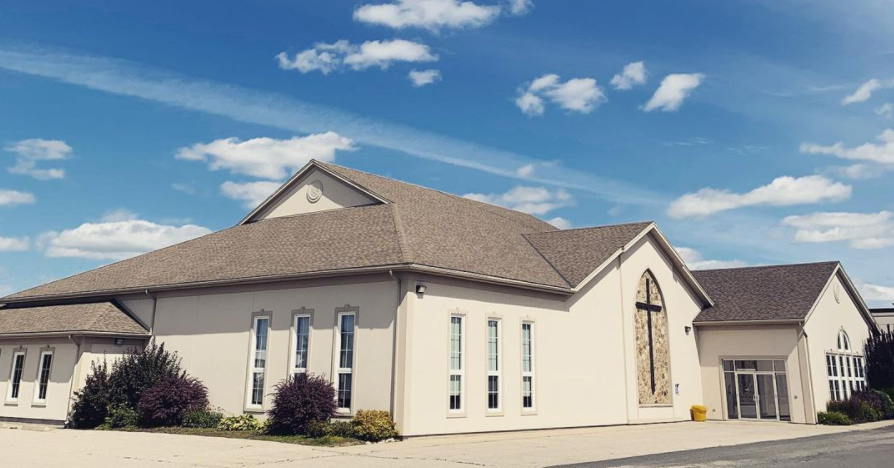Ontario’s Ministry of the Attorney General was given a chance to respond on Tuesday to arguments made by lawyers representing a pair of churches that are challenging the constitutionality of gathering restrictions implemented during the COVID-19 pandemic.

The churches, Church of God in Aylmer and Trinity Bible Chapel in Waterloo, argue indoor and outdoor gathering restrictions are over-broad, unreasonable, arbitrary limits that violate Charter rights and cannot be justified.
The two churches leading the constitutional challenge, which held its first hearing on Monday, have both faced numerous charges, including findings of contempt, for repeatedly defying COVID-19 restrictions.
The challenge is being held virtually in the St. Thomas Superior Court of Justice with Justice Renee Pomerance presiding over the matter.
Tuesday’s hearing began with the continued arguments of the lawyers representing the churches.
They argued that outdoor gatherings for churches were unreasonable due to what the lawyers described as a minimal risk for spread of the virus outside.
The lawyers also weighed the other potential risks imposed by placing restrictions on places of worship.
“COVID is not the only consideration here and there are very significant impacts to denying people access to one another … loneliness kills,” said Rob Kittredge, one of several lawyers representing the churches.
“I’m not a religious person and to me this case is about overreach in general terms and what sort of country Canada wants to be going forward.”
Josh Hunter, a lawyer representing the attorney general, began the province’s arguments by noting that a number of the gathering restrictions being discussed are no longer enforced, having been amended and replaced over the course of the ongoing pandemic.

Get weekly health news
An example of changing restrictions can be found as recently as Monday, when Ontario allowed religious services, along with an array of other settings, to operate with 50 per cent capacity limits.
During the challenge, the churches’ lawyers compared gathering restrictions placed on retail settings to those placed on religious settings, arguing the latter setting was unfairly targeted with tougher limits.
Hunter responded to this comparison and said “the other activities of religious gathering, by their very nature, pose different risks than other activities,” when it comes to the spread of COVID-19.
“Going to church is not the same as going to the grocery store, you do different things,” Hunter said.
Hunter then showed the court examples of Trinity Bible Chapel and Church of God defying health measures, including a YouTube video of a service from Church of God that showed a lack of distancing with parishioners eventually being brought indoors without masks and without adhering to indoor gathering limits.
“It’s not about the compliance or non-compliance, it’s about what is the activity that this set of impugned regulations are trying to regulate and the government’s purpose,” Hunter said.
“These activities, by their very nature, are the types of activity where, unfortunately, COVID tends to spread.”

Ryan Cookson, another lawyer representing the attorney general, accused the lawyers representing the churches of misinterpreting evidence gathered for the challenge that spoke to the transmission risk of COVID-19 outdoors.
The evidence was gathered in part through the testimony and cross-examination of a number of doctors, including infectious disease physician Dr. Zain Chagla and Dr. David McKeown, who served as Toronto’s medical officer of health before his retirement in 2016. McKeown also helped with Ontario’s COVID-19 response.
“My submission is that my friends, respectfully, are reading in words that are not said by the experts,” Cookson said.
Cookson added that the doctors interviewed concluded there was still a risk for outdoor transmission of COVID-19 and that this risk grew as gathering sizes grew and as health measures were not adhered to.
He said that Ontario had to consider community prevalence and variants of concern when implementing restrictions, adding that the pandemic continues to evolve in 2022 with the latest wave brought on by Omicron.
Cookson also argued that evidence in the challenge showed there was a causal relationship between restrictions and lowering the amount of COVID-19 infections and hospitalizations in the province, despite the churches’ lawyers arguing this was only a correlation.
Initial hearings for the challenge were originally set to end on Wednesday, but Pomerance, the Superior Court Justice presiding over the case, said hearings could stretch into Thursday if need be.
Lawyers for the attorney general are expected to open Wednesday’s hearing with a continuation of their arguments.














Comments
Want to discuss? Please read our Commenting Policy first.